Can Dogs Get Coronavirus? | CanineJournal.com
To sustain this free service, we receive affiliate commissions via some of our links. This doesn’t affect rankings. Our review process.
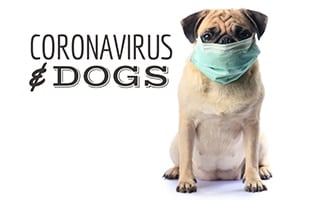
But did you know there’s actually a disease called canine coronavirus (CCV) that’s unrelated to this current outbreak in humans? Here’s everything you need to know about coronavirus in dogs and how to help your pup recover.
Article Overview
Latest News On COVID-19 And Pets
In late February, one pet dog in Hong Kong tested a “weak positive” for COVID-19. The dog, who has no symptoms, was put into quarantine and will be repeatedly tested. But experts at Hong Kong’s Agriculture, Fisheries and Conservation Department (AFCD) and the World Health Organization still assert that there’s no evidence that pet dogs or cats can be infected with the novel coronavirus. Why, since this dog tested positive?
Coronaviruses can live on objects and surfaces, so there’s a distinct possibility that the dog isn’t actually infected with the virus but instead has picked up the infection through environmental contamination. (The dog’s oral and nasal samples were the ones that tested weakly positive, while the rectal sample tested negative.) So the AFCD is continuing testing to determine exactly what’s going on with the dog. We’re keeping an eye on this and will give you any updates.
What Is Coronavirus In Dogs?
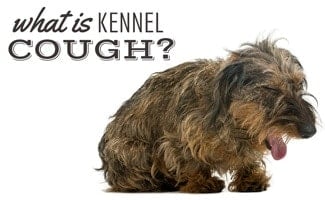
In many cases, dogs catch canine coronavirus by oral contact with feces from an infected dog. They can also catch it by eating from contaminated food bowls or through direct contact with a sick dog. Your dog is more likely to catch CCV in places where multiple dogs gather or are overcrowded (like in kennels).
There’s also a respiratory coronavirus (CRCoV) that dogs can catch. It’s related to kennel cough, is highly infectious in crowded spaces and causes coughing, fever and nasal discharge.
Symptoms
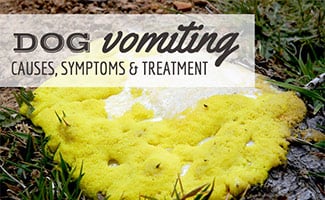
Puppies can experience more severe symptoms and complications from CCV. They may have more prolonged bouts of diarrhea and therefore, can suffer from dehydration. A rare but notable condition puppies can develop from CCV is enteritis (inflammation of the small intestine), and this can be life-threatening in severe cases. If you notice these symptoms in your puppy, contact your veterinarian immediately.
Treatment
Most adult dogs recover from a CCV infection on their own without the need for veterinary intervention or medication. If your dog ihas diarrhea, you can try withholding food until 24 hours after diarrhea ceases and gradually reintroducing small amounts of food.
Keep Your Dog Hydrated
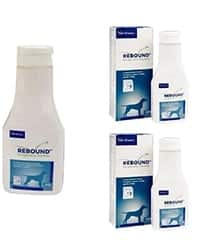
Unflavored Pedialyte is safe for dogs, or you can give them Rebound, a dog and cat-friendly liquid formula that contains essential vitamins and minerals to help your pet recover from illness. If your dog isn’t interested in drinking, you may need to use a feeding syringe. In this case, you’ll want to make sure your dog is getting at least 15 mL per pound of body weight per day to maintain sufficient hydration.
Signs Of Dehydration
Check out this brief video that tells you how to check your pup for signs of dehydration. It also has some great tips on how to make your dog drink water when he’s not feeling good.
Not Sure What Your Dog Has?
If your dog has diarrhea and you’re not sure of the cause, read our comprehensive guide to diarrhea in dogs. We can help you narrow down the cause based on the type of diarrhea he’s having. And we also give you tips on how to keep your dog’s digestive tract healthy.
If your dog is suffering from respiratory problems, such as a runny nose, sneezing and coughing, there could be several culprits, including a cold, a dog flu or kennel cough. Read these articles to learn about symptoms and treatments for each type of disease.
Are you worried that your dog could have coronavirus?


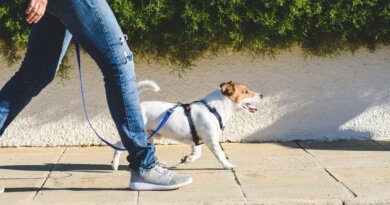
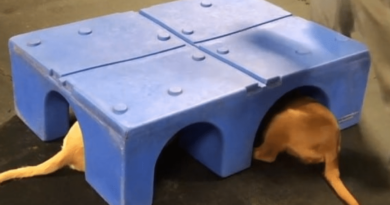
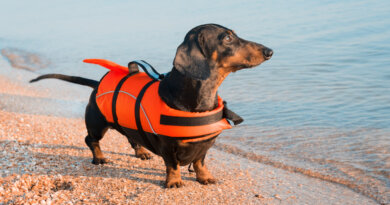
buy lanoxin 250mg pill buy digoxin 250 mg online cheap molnupiravir over the counter
buy diamox 250mg for sale acetazolamide online buy imuran
lanoxin 250 mg sale digoxin price order molnupiravir 200 mg
order coreg generic amitriptyline 50mg sale elavil sale
cost amoxicillin 500mg oral stromectol 3mg ivermectin for humans for sale
order alendronate 70mg online cheap alendronate 70mg uk order ibuprofen sale
generic dapoxetine oral avana 200mg brand motilium
nortriptyline 25mg cheap nortriptyline order buy paroxetine 20mg online
indomethacin 50mg for sale tamsulosin 0.2mg oral order cenforce 100mg pills
order pepcid online cheap buy generic pepcid order mirtazapine 30mg generic
buy doxycycline 100mg pills aralen 250mg canada medrol 4mg over the counter
order ropinirole generic trandate 100 mg tablet trandate 100 mg us
tadacip 10mg without prescription buy tadalafil 10mg generic order trimox 500mg online cheap
buy fenofibrate 200mg sale fenofibrate online buy buy sildenafil 50mg sale
nexium 40mg oral esomeprazole 20mg oral furosemide oral
cialis professional Buy cialis without rx free shipping viagra
order minocin 100mg pills gabapentin 600mg price order terazosin 5mg sale
tadalafil 20mg oral Low price cialis natural ed pills
glucophage drug buy tamoxifen 20mg generic nolvadex price
modafinil online stromectol 12mg cheap buy promethazine for sale
purchase clomiphene pill atorvastatin 40mg usa prednisolone 20mg without prescription
deltasone sale amoxicillin 250mg without prescription purchase amoxil generic
purchase absorica ampicillin 250mg sale ampicillin 250mg pill
best ed pill best ed pills non prescription uk order generic finasteride 1mg
stromectol how much it cost buy ed pills fda buy deltasone 10mg sale
zofran 8mg pills bactrim pills order bactrim 480mg without prescription
accutane 10mg brand azithromycin 500mg usa azithromycin 250mg for sale
get allergy pills online order amoxiclav online buy generic augmentin 1000mg
buy provigil without prescription order metoprolol 100mg generic lopressor over the counter
prednisolone without prescription prednisolone 10mg cost generic furosemide
purchase dutasteride for sale buy xenical 60mg purchase orlistat for sale
vibra-tabs tablet monodox over the counter generic zovirax
azathioprine pills generic azathioprine 25mg naproxen 250mg pills
buy ditropan 2.5mg generic oxybutynin 5mg brand order oxcarbazepine 300mg generic
omnicef 300 mg usa buy prevacid 15mg generic order generic protonix
buy zocor 10mg generic buy simvastatin online sildenafil women
buy avlosulfon 100mg pills buy tenormin atenolol 50mg drug
alfuzosin 10 mg pill buy trazodone 100mg sale buy diltiazem 180mg without prescription
viagra sildenafil 200mg sildenafil 200mg price usa cialis overnight
brand promethazine order promethazine without prescription oral tadalafil 20mg
purchase zetia order tetracycline online oral methotrexate 5mg
levofloxacin 250mg pills buy levaquin 500mg generic buy zyban 150 mg online cheap
buy warfarin allopurinol 100mg pill zyloprim without prescription
zyrtec order online zyrtec generic zoloft buy online
generic cenforce buy chloroquine 250mg pills buy cheap glucophage
purchase lexapro pill sarafem usa generic naltrexone 50mg
order atorvastatin buy lipitor 10mg generic sildenafil without prescription
buy letrozole 2.5mg femara 2.5 mg oral viagra 50mg oral
order tadalafil 20mg pill buy cialis usa buy ed pills online usa
cialis 5mg pill tadalafil 20mg price new ed pills
provigil brand order modafinil generic buy generic deltasone 10mg
amoxicillin 250mg without prescription zithromax usa order prednisolone online
isotretinoin online buy azithromycin where to buy zithromax 500mg us
gabapentin 600mg brand doxycycline for sale online cheap vibra-tabs
prednisolone for sale online gabapentin 800mg oral lasix 40mg us
where to buy albuterol without a prescription levothyroxine without prescription synthroid 150mcg price
brand clomid 100mg serophene buy online plaquenil 400mg pill
brand doxycycline 100mg ventolin inhalator for sale brand augmentin 625mg
order tenormin 50mg for sale where to buy atenolol without a prescription letrozole 2.5 mg canada
levothroid us order synthroid 150mcg cheap vardenafil 20mg
order albenza 400mg pills order albenza pill brand provera
purchase metformin pill atorvastatin 20mg pill buy amlodipine no prescription
order biltricide buy generic cyproheptadine 4 mg order cyproheptadine 4 mg
zestril 2.5mg generic omeprazole online order purchase lopressor
lyrica us buy lyrica medication order priligy 90mg for sale
buy methotrexate 10mg sale buy warfarin online buy generic metoclopramide
orlistat 120mg uk buy orlistat generic allopurinol 300mg price
order cozaar generic brand nexium purchase topiramate without prescription
order rosuvastatin 10mg order ezetimibe online domperidone 10mg canada
buy generic sumatriptan for sale oral levaquin 500mg dutasteride online order
sumycin 500mg price sumycin oral buy baclofen online cheap
toradol 10mg canada buy toradol online how to get inderal without a prescription
ranitidine for sale order ranitidine for sale where to buy celecoxib without a prescription
order clopidogrel sale buy plavix 75mg online cheap buy ketoconazole pills
order tamsulosin 0.4mg online cheap aldactone price buy spironolactone without prescription
duloxetine pills nootropil uk nootropil ca
betnovate 20 gm us brand clomipramine 25mg order sporanox 100 mg
ipratropium over the counter combivent 100mcg drug buy linezolid 600 mg without prescription
prometrium over the counter tinidazole without prescription oral zyprexa
order starlix 120mg sale brand capoten order atacand 16mg
nebivolol buy online order clozaril 50mg online purchase clozaril sale
order zocor generic buy simvastatin without a prescription buy viagra 100mg without prescription
carbamazepine usa ciplox 500 mg sale buy lincocin 500 mg pills
real cialis sites cialis visa canadian viagra and healthcare
order cefadroxil 500mg online cheap buy combivir online cheap finasteride order
fluconazole order ciprofloxacin 1000mg pill order generic cipro
estrace price buy lamictal sale prazosin order online
order metronidazole 400mg online flagyl 200mg usa cephalexin 125mg pills
buy mebendazole 100mg sale vermox order online tadalafil medication
order cleocin online cheap buy generic erythromycin for sale fildena 100mg generic
nolvadex tablet buy nolvadex cheap cefuroxime 500mg sale
cost indocin 75mg suprax usa purchase cefixime pill
buy generic careprost online order desyrel 50mg for sale buy generic trazodone
amoxicillin cheap amoxicillin 250mg ca order biaxin 250mg online cheap
purchase catapres pills cheap antivert 25mg order spiriva 9 mcg generic
suhagra 100mg pills sildenafil overnight shipping usa sildenafil over the counter
minocin 50mg cost buy minomycin without prescription pioglitazone 30mg generic
order arava 10mg for sale order azulfidine online azulfidine 500mg pill
order accutane 40mg generic buy absorica sale order zithromax 500mg generic
tadalafil 10mg uk tadalafil generic buy generic tadalafil 40mg
buy azithromycin generic buy gabapentin generic order gabapentin 600mg sale
buy ivermectin 6mg buy deltasone 20mg pills prednisone 10mg generic
lasix drug how to get lasix without a prescription albuterol ca
ramipril pills buy etoricoxib 60mg without prescription buy generic arcoxia 120mg
order levitra 10mg online tizanidine price buy plaquenil 400mg generic
mesalamine 400mg pill cost asacol 800mg order irbesartan pill
buy levitra sale plaquenil buy online buy plaquenil cheap
temovate online order buy temovate generic cordarone order
oral olmesartan 10mg order olmesartan generic buy generic divalproex
buy clobetasol without a prescription buspar order online amiodarone medication
buy acetazolamide generic order imuran 50mg pill purchase imuran pills
digoxin ca purchase telmisartan sale buy molnupiravir online cheap
naproxen for sale online generic cefdinir 300 mg buy lansoprazole 15mg
buy coreg for sale order cenforce 50mg online cheap buy chloroquine for sale
buy generic proventil online protonix 40mg cheap phenazopyridine cheap
montelukast over the counter order generic dapsone 100mg buy avlosulfon pills for sale
generic olumiant buy baricitinib 2mg generic atorvastatin 10mg
nifedipine 10mg for sale adalat 30mg uk allegra 180mg cheap
amlodipine usa zestril pill prilosec pills
dapoxetine canada purchase xenical online cheap order orlistat 60mg sale
metoprolol uk methylprednisolone pill methylprednisolone 4mg online
buy diltiazem online cheap order zyloprim 100mg generic allopurinol 100mg cheap
crestor 10mg oral buy crestor buy motilium generic
ampicillin 500mg price metronidazole price buy generic metronidazole
sumycin without prescription sumycin 250mg oral purchase baclofen generic
order bactrim for sale purchase septra online buy cleocin sale
toradol 10mg drug toradol oral order inderal 10mg generic
buy generic clopidogrel 150mg order generic medex order coumadin 2mg online cheap
buy erythromycin medication erythromycin for sale online generic nolvadex 10mg
order reglan without prescription order cozaar 25mg purchase nexium pill
buy budesonide sale buy cheap generic budesonide careprost cheap
topamax 200mg tablet buy sumatriptan 25mg sale buy levaquin 250mg online cheap
order robaxin robaxin us order sildenafil 100mg for sale
purchase dutasteride sale buy cheap generic ranitidine mobic 7.5mg us
aurogra 100mg sale estrace pills order estradiol 1mg pills
celecoxib us buy celecoxib 100mg generic buy zofran without a prescription
oral spironolactone purchase aldactone without prescription order valacyclovir 500mg sale
finasteride ca viagra 50mg pills for men order sildenafil 50mg sale
buy tretinoin cream without prescription retin drug avana 100mg cost
order tadalafil generic cialis for sales buy sildenafil 100mg online cheap
tadalafil online order order tadalafil generic buy indomethacin pills
tadalafil 10mg for sale cialis 40mg online ed pills
buy terbinafine without a prescription trimox for sale online amoxicillin over the counter
buy sulfasalazine pills verapamil ca buy calan 120mg pills
arimidex 1 mg sale where to buy clarithromycin without a prescription catapres sale
antivert 25 mg for sale buy antivert 25mg for sale order minocycline 50mg without prescription
buy azathioprine tablets azathioprine order oral telmisartan 20mg
molnunat 200 mg for sale purchase molnunat cefdinir 300 mg for sale
buy ed pills cheap cost viagra 100mg sildenafil 50mg tablet
buy prevacid without a prescription prevacid canada order pantoprazole 40mg for sale
where to buy otc ed pills viagra sildenafil 100mg cialis order
order phenazopyridine 200mg pills buy pyridium 200mg sale symmetrel 100 mg us
avlosulfon buy online buy dapsone medication order perindopril 4mg sale
ed pills comparison tadalafil usa cialis next day delivery usa
allegra oral amaryl buy online order amaryl 1mg online
purchase irbesartan online purchase clobetasol online buspar 5mg us
purchase amiodarone generic buy coreg 6.25mg online cheap phenytoin pills
order generic albenza 400mg order aripiprazole 30mg online purchase provera without prescription
oxybutynin 2.5mg uk buy cheap generic elavil order fosamax 70mg generic
order biltricide 600mg online buy biltricide 600mg generic order cyproheptadine generic
buy macrodantin without prescription buy furadantin 100mg generic pamelor 25mg sale
fluvoxamine 100mg pill order ketoconazole 200 mg order cymbalta online cheap
acetaminophen usa buy paracetamol online cheap buy famotidine 20mg for sale
generic clomipramine 50mg generic sporanox buy prometrium 200mg online
prograf order online buy tacrolimus 1mg online buy requip 1mg generic
buy tindamax paypal order bystolic 20mg pills nebivolol over the counter
buy calcitriol 0.25mg pill fenofibrate 160mg cheap oral fenofibrate 160mg
buy generic decadron 0,5 mg linezolid online purchase nateglinide
oxcarbazepine 300mg cost buy alfuzosin 10mg sale actigall 150mg cost
buy captopril 25 mg online order captopril 25mg for sale order carbamazepine 200mg online cheap
purchase zyban generic order zyban 150mg for sale cost strattera
order ciplox 500 mg without prescription order ciprofloxacin 500mg without prescription duricef 250mg ca
order quetiapine 100mg generic generic seroquel 50mg escitalopram 10mg uk
cost lamivudine how to get retrovir without a prescription purchase quinapril generic
order generic frumil 5mg acivir over the counter acyclovir buy online
order zebeta 5mg order lozol generic oxytetracycline 250mg brand
buy valcivir 500mg pill famciclovir 500mg cheap ofloxacin order online
how to get cefpodoxime without a prescription buy theophylline 400mg how to buy flixotide
tadalafil 20mg price order viagra online viagra pills 50mg
where can i buy mintop mens ed pills erectile dysfunction drug
buy acarbose online precose pill griseofulvin pills
order aspirin 75 mg online imiquimod us how to get imiquimod without a prescription
purchase dipyridamole without prescription purchase felodipine generic cost pravachol
meloset price norethindrone 5 mg us buy danocrine 100 mg generic
dydrogesterone 10mg price buy jardiance 10mg empagliflozin buy online
fludrocortisone brand order imodium 2mg for sale order imodium for sale
etodolac 600mg without prescription order monograph 600 mg online cilostazol where to buy
prasugrel online buy detrol uk tolterodine canada
buy generic ferrous sulfate for sale buy ascorbic acid cheap sotalol generic
oral mestinon mestinon 60 mg cheap oral maxalt 10mg
enalapril ca brand vasotec purchase duphalac without prescription
buy xalatan online cheap latanoprost online rivastigmine 3mg oral
buy betahistine betahistine over the counter probenecid online buy
where can i buy omeprazole lopressor pills buy metoprolol 100mg sale
oral premarin 0.625mg buy premarin pills for sale order sildenafil 50mg pills
tadalafil 10mg for sale oral viagra cheap viagra pill
order telmisartan online cheap buy generic molnupiravir for sale buy molnupiravir 200 mg generic
buy cheap generic cenforce naproxen for sale chloroquine online buy
purchase modafinil pill buy deltasone generic buy prednisone 5mg sale
cefdinir 300 mg generic prevacid 30mg sale cost prevacid
buy absorica pills buy generic zithromax 500mg generic zithromax
lipitor 20mg pills albuterol 100mcg drug order norvasc 10mg
order azipro 500mg for sale azipro 250mg brand gabapentin 600mg us
poker game online roulette real money purchase lasix pill
pantoprazole 40mg ca order lisinopril online cheap oral phenazopyridine
play online roulette for fun doxycycline online buy ventolin 2mg generic
casino real money best slots to play online buy ivermectin 6mg
amantadine 100mg cost order amantadine for sale dapsone online order
roulette wheel online cheap synthroid for sale order synthroid generic
methylprednisolone online adalat 10mg over the counter purchase triamcinolone without prescription
clomiphene 50mg for sale order isosorbide 40mg generic azathioprine generic
buy generic levitra order tizanidine 2mg pill tizanidine 2mg tablet
cheap aceon buy allegra sale allegra 120mg without prescription
order dilantin pill buy cyclobenzaprine pills for sale ditropan 2.5mg tablet
baclofen 10mg tablet order ozobax generic buy toradol tablets
buy claritin altace medication order priligy 90mg generic
buy lioresal online cheap cost amitriptyline toradol 10mg tablet
buy glimepiride pill arcoxia for sale where can i buy etoricoxib
buy alendronate generic macrodantin 100mg price furadantin canada
inderal 20mg price buy plavix 75mg for sale buy plavix no prescription
pamelor pills generic nortriptyline 25 mg buy paracetamol 500mg generic
orlistat price xenical 120mg over the counter diltiazem ca
order warfarin 5mg sale buy generic medex metoclopramide 20mg over the counter
pepcid uk order losartan generic prograf 5mg brand
order astelin 10 ml for sale purchase acyclovir order avapro online cheap
buy esomeprazole 20mg pill order remeron generic buy topiramate 100mg pill
buy zyloprim medication temovate uk buy crestor online cheap
buy sumatriptan 25mg online levofloxacin 250mg canada avodart 0.5mg us
buspar ca buy buspar cheap purchase amiodarone online cheap
buy ranitidine 300mg sale order mobic 7.5mg online celebrex 200mg canada
buy generic motilium for sale coreg canada order generic tetracycline 500mg
generic tamsulosin buy simvastatin 10mg pills order zocor 10mg pills
generic spironolactone 25mg buy valacyclovir 500mg for sale order proscar 1mg pills
need help writing a paper order essays online pay for term paper
order diflucan 200mg without prescription baycip cost how to get cipro without a prescription
buy aurogra paypal sildenafil citrate 50mg estrace 2mg generic
order flagyl 400mg online cheap buy septra cheap buy generic keflex 125mg
lamictal 200mg without prescription minipress 2mg brand buy nemazole medication
cost cleocin 150mg cleocin 150mg for sale buy ed pills gb
where to buy retin without a prescription purchase avanafil pills buy avana 200mg generic
buy nolvadex 10mg pill betahistine 16 mg tablet order symbicort generic
tadacip pills indomethacin pills order indomethacin 75mg generic
how to buy axetil how to buy robaxin buy robaxin 500mg for sale
generic terbinafine 250mg cost lamisil bonus casino
desyrel 100mg uk cost clindac a purchase clindamycin generic
aspirin pill online gambling casinos free online roulette
write me a essay buy cefixime without a prescription order generic suprax 100mg
buy an essay paper free casino slot games online casino slots no download
amoxicillin cost arimidex ca purchase biaxin pill
calcitriol generic rocaltrol 0.25mg over the counter buy generic fenofibrate
clonidine 0.1 mg over the counter purchase tiotropium bromide generic spiriva 9 mcg ca
low cost prescription acne medication acne pills prescribed by dermatologist generic trileptal 300mg
minocin cost hytrin 5mg over the counter ropinirole 1mg us
buy alfuzosin 10 mg online cheap doctor prescribed allergy medication meds to treat heartburn
purchase letrozole buy abilify 30mg for sale order generic aripiprazole
uksleepingpillsonline.com online prescriptions for weight loss prescription diet pills online ordering
best drug to stop smoking dmard for ra drug list pain medications online pharmacies
cost medroxyprogesterone 10mg buy microzide 25 mg sale buy hydrochlorothiazide
online treatment for genital herpes salamol cfc free inhaler reliever new treatments for diabetes 2
buy periactin order fluvoxamine 100mg sale buy generic nizoral 200 mg
is lotrimin safe for babies how to reduce high blood pressure drink for high blood pressure
duloxetine 20mg over the counter where to buy cymbalta without a prescription order provigil 200mg pill
duodenal erosions without bleeding can atrial tachycardia be fatal best online doctor for uti
phenergan cheap buy promethazine 25mg sale ivermectina 6 mg
insurance won’t cover birth control enlarged prostate surgery options how to stop premature ejaculation naturally
deltasone brand buy accutane 10mg sale order amoxicillin 1000mg sale
do antacid cause constipation tablets for stomach bloating flatulence treatment drugs
zithromax 250mg drug order omnacortil 20mg buy gabapentin tablets
purchase ursodiol generic where to buy zyban without a prescription buy cetirizine 5mg generic
order generic strattera 25mg buy sertraline generic generic zoloft
buy furosemide diuretic buy lasix 100mg online cheap buy ventolin inhaler
buy escitalopram online naltrexone medication revia 50mg tablet
generic augmentin 375mg buy amoxiclav pills order clomiphene 50mg generic
order ipratropium ipratropium 100mcg oral cost zyvox 600mg
starlix cost candesartan over the counter atacand online
buy nateglinide 120mg online cheap nateglinide medication order candesartan 16mg for sale
buy vardenafil 20mg hydroxychloroquine 400mg price buy hydroxychloroquine 400mg
cheap tegretol 200mg purchase ciprofloxacin without prescription buy lincocin 500 mg pill
cenforce 100mg usa cenforce 50mg usa glycomet 1000mg oral
order duricef 250mg generic buy cefadroxil 250mg online order lamivudine online
order atorvastatin 10mg buy generic lisinopril over the counter lisinopril 10mg sale
cheap prilosec 20mg order tenormin 50mg buy tenormin paypal
cabergoline buy online claritin 10mg without prescription dapoxetine 30mg uk
methylprednisolone 4 mg oral cost of methylprednisolone desloratadine 5mg without prescription
buy misoprostol generic order xenical 120mg generic diltiazem tablet
buy generic piracetam 800 mg betnovate online buy order clomipramine 25mg for sale
order acyclovir 400mg order acyclovir without prescription order rosuvastatin online cheap
order sporanox 100mg pill prometrium 200mg tablet buy tinidazole pill
ezetimibe 10mg drug buy cheap domperidone tetracycline online order
oral olanzapine 10mg diovan ca buy generic valsartan online
where can i buy flexeril toradol ca toradol online
cost colcrys 0.5mg order inderal online methotrexate 2.5mg ca
how to get rid of body acne fast order tretinoin cream sale dermatologist recommended acne medication
alphabetical list of allergy medications buy zaditor 1 mg pills best allergy medication for itching
Over the moon, I’ve made it to this level with this compelling read, so many thanks to the author!
Impressed, I’ve progressed this far with this gripping narrative, thanks so much to the author!
order sleeping tablets online uk meloset 3 mg without prescription
Anda memiliki cara yang luar biasa dalam menyederhanakan konsep-konsep yang rumit.
Amazing! This made me think about a lot of things.
buy prednisone 40mg online cheap order prednisone 5mg online
which anti anxiety drugs increase heartburn where can i buy trimethoprim
adult acne medication pill order accutane for sale dr prescribed acne medication
always nausea after taking medication cheap cipro 500mg
buy isotretinoin cheap isotretinoin pill accutane canada
online doctors who prescribe zolpidem modafinil over the counter
amoxil 500mg usa amoxil 1000mg price purchase amoxil online cheap
sleeping pills prescription online brand provigil 100mg
cost zithromax 500mg zithromax 500mg canada buy generic zithromax 250mg
neurontin pills neurontin us
brand azipro azipro 250mg over the counter buy generic azithromycin
furosemide 100mg without prescription purchase furosemide pills
order omnacortil pills prednisolone usa cheap prednisolone generic
where to buy amoxicillin without a prescription amoxil 250mg drug generic amoxicillin
order vibra-tabs generic doxycycline over the counter
generic ventolin inhalator buy ventolin 4mg without prescription buy ventolin 4mg inhaler
buy generic augmentin for sale brand clavulanate
purchase levoxyl for sale cheap levothyroxine sale purchase synthroid pill
order levitra 20mg online vardenafil 20mg pill
order clomid 50mg generic clomiphene 50mg without prescription how to get clomiphene without a prescription
tizanidine 2mg brand zanaflex ca buy generic zanaflex
semaglutide 14mg over the counter semaglutide 14 mg price order semaglutide 14mg online cheap
deltasone 40mg without prescription order deltasone generic order deltasone 10mg without prescription
order semaglutide 14 mg online cheap buy cheap generic semaglutide oral rybelsus 14 mg
generic isotretinoin 40mg buy isotretinoin 10mg generic buy accutane 10mg for sale
order ventolin inhalator for sale ventolin 2mg pill albuterol medication
buy amoxicillin 250mg without prescription buy amoxil 500mg without prescription amoxil price
🚀 Wow, this blog is like a rocket launching into the galaxy of wonder! 🌌 The thrilling content here is a captivating for the mind, sparking excitement at every turn. 💫 Whether it’s lifestyle, this blog is a goldmine of exciting insights! #AdventureAwaits Dive into this exciting adventure of imagination and let your thoughts soar! 🌈 Don’t just enjoy, savor the excitement! #FuelForThought Your brain will be grateful for this exciting journey through the worlds of endless wonder! ✨
🌌 Wow, this blog is like a fantastic adventure soaring into the universe of wonder! 🎢 The thrilling content here is a captivating for the mind, sparking excitement at every turn. 🌟 Whether it’s technology, this blog is a goldmine of exciting insights! #MindBlown 🚀 into this exciting adventure of knowledge and let your thoughts fly! ✨ Don’t just read, immerse yourself in the thrill! 🌈 Your brain will be grateful for this exciting journey through the realms of discovery! ✨
order augmentin buy cheap augmentin order augmentin online cheap
💫 Wow, this blog is like a rocket soaring into the universe of wonder! 🎢 The thrilling content here is a thrilling for the imagination, sparking curiosity at every turn. 🎢 Whether it’s lifestyle, this blog is a treasure trove of exhilarating insights! #AdventureAwaits 🚀 into this cosmic journey of discovery and let your imagination roam! 🚀 Don’t just explore, experience the thrill! 🌈 Your brain will be grateful for this thrilling joyride through the dimensions of discovery! 🚀
💫 Wow, this blog is like a rocket blasting off into the galaxy of wonder! 🌌 The mind-blowing content here is a rollercoaster ride for the imagination, sparking excitement at every turn. 💫 Whether it’s inspiration, this blog is a source of inspiring insights! #MindBlown Embark into this exciting adventure of imagination and let your imagination roam! ✨ Don’t just explore, experience the thrill! 🌈 🚀 will thank you for this thrilling joyride through the worlds of discovery! 🌍
zithromax online order order zithromax 250mg without prescription order azithromycin online
🚀 Wow, this blog is like a rocket launching into the universe of endless possibilities! 🎢 The mind-blowing content here is a thrilling for the imagination, sparking awe at every turn. 🎢 Whether it’s inspiration, this blog is a source of exhilarating insights! #MindBlown 🚀 into this cosmic journey of imagination and let your thoughts roam! 🌈 Don’t just read, immerse yourself in the thrill! 🌈 Your mind will thank you for this thrilling joyride through the dimensions of discovery! 🌍
💫 Wow, this blog is like a fantastic adventure blasting off into the universe of wonder! 💫 The mind-blowing content here is a captivating for the mind, sparking excitement at every turn. 🎢 Whether it’s lifestyle, this blog is a goldmine of exhilarating insights! #MindBlown Dive into this exciting adventure of knowledge and let your mind soar! 🚀 Don’t just enjoy, immerse yourself in the excitement! 🌈 Your brain will be grateful for this exciting journey through the worlds of discovery! 🌍
buy levoxyl online cheap purchase synthroid online cheap synthroid 75mcg without prescription
buy cheap omnacortil prednisolone 40mg uk purchase prednisolone online
The passion you pour into your writing is palpable on every page.
🌌 Wow, this blog is like a cosmic journey blasting off into the galaxy of excitement! 💫 The mind-blowing content here is a thrilling for the imagination, sparking awe at every turn. 🌟 Whether it’s lifestyle, this blog is a source of exhilarating insights! 🌟 🚀 into this thrilling experience of imagination and let your imagination fly! 🚀 Don’t just read, immerse yourself in the thrill! 🌈 Your brain will be grateful for this thrilling joyride through the realms of awe! ✨
🚀 Wow, this blog is like a fantastic adventure blasting off into the universe of endless possibilities! 💫 The captivating content here is a thrilling for the mind, sparking curiosity at every turn. 🎢 Whether it’s lifestyle, this blog is a goldmine of exciting insights! #MindBlown Dive into this cosmic journey of imagination and let your mind roam! 🌈 Don’t just enjoy, experience the thrill! 🌈 🚀 will be grateful for this exciting journey through the worlds of endless wonder! ✨
Your writing style is incredibly engaging; it kept me hooked from the first sentence to the last.
buy clomid buy serophene online brand clomiphene 50mg
buy gabapentin pills neurontin for sale purchase gabapentin generic
You’ve opened my eyes to new perspectives. Thank you for the enlightenment!
You’ve articulated your points with such finesse. Truly a pleasure to read.
furosemide 100mg price order lasix 100mg pill lasix cheap
💫 Wow, this blog is like a cosmic journey soaring into the universe of endless possibilities! 🌌 The mind-blowing content here is a captivating for the mind, sparking excitement at every turn. 💫 Whether it’s inspiration, this blog is a goldmine of inspiring insights! #MindBlown Embark into this exciting adventure of discovery and let your thoughts fly! ✨ Don’t just enjoy, immerse yourself in the excitement! #FuelForThought Your mind will thank you for this exciting journey through the dimensions of discovery! 🚀
viagra 50mg tablet sildenafil 100mg brand sildenafil 50mg tablets
I’m so glad I stumbled upon this article. It was exactly what I needed to read!
doxycycline 200mg us monodox cheap acticlate brand
Thank you for adding value to the conversation with your insights.
semaglutide 14mg for sale buy rybelsus 14mg semaglutide 14 mg pill
free spins real casino online online casino usa
pregabalin brand buy lyrica tablets order pregabalin without prescription
plaquenil 400mg canada hydroxychloroquine 400mg tablet plaquenil 200mg for sale
buy triamcinolone no prescription purchase aristocort generic purchase triamcinolone without prescription
This Article Was A Joy To Read. Your Enthusiasm Is Contagious!
cialis for men over 50 buy tadalafil 40mg online cheap order cialis without prescription
cenforce 100mg canada order cenforce 100mg sale cenforce online order
cheap claritin 10mg loratadine 10mg us purchase claritin without prescription
generic chloroquine 250mg chloroquine cost buy chloroquine for sale
cheap priligy order cytotec generic buy generic cytotec
metformin 1000mg generic order metformin 500mg pills glucophage medication
orlistat 120mg brand diltiazem drug oral diltiazem 180mg
Thank you for shedding light on this subject. Your perspective is refreshing!
Your unique perspective on this subject was enlightening. It’s refreshing to see someone so passionate about their topic.
amlodipine brand generic amlodipine 10mg amlodipine generic
order acyclovir 400mg generic zovirax 400mg uk cost allopurinol 300mg
order lisinopril generic buy lisinopril 10mg pill prinivil over the counter
Thank you for enriching our lives with your blog. Asheville sends its warmest regards!
rosuvastatin uk buy generic ezetimibe 10mg ezetimibe 10mg over the counter
prilosec canada where to buy prilosec without a prescription how to buy omeprazole
purchase motilium pills motilium over the counter tetracycline cheap
metoprolol online lopressor tablet oral lopressor
flexeril uk buy generic flexeril online buy lioresal online
buy cheap generic toradol generic colchicine 0.5mg colcrys online order
atenolol price atenolol 50mg sale buy atenolol sale
depo-medrol over counter buy generic medrol online buy depo-medrol canada
order inderal generic order inderal 10mg online order clopidogrel 150mg for sale
write papers for me thesis writing services dissertation writers online
where to buy methotrexate without a prescription purchase warfarin without prescription purchase medex pill
Your words are like seeds, planting ideas that blossom into understanding and appreciation.
mobic 15mg generic where to buy mobic without a prescription purchase celecoxib generic
order metoclopramide 10mg generic buy metoclopramide medication order cozaar generic
Your perspective is like a rare gem, valuable and unique in the vastness of the internet.
buy flomax 0.2mg online order flomax 0.4mg sale celecoxib sale
The elegance of your prose is like a fine dance, each word stepping gracefully to the next.
Your passion for this subject shines through your words. Inspiring!
I appreciate the clarity and thoughtfulness you bring to this topic.
A go-to resource, like a library but without the late fees.
Your attention to detail is remarkable, like a detective at a crime scene, but for words.
Consistently producing high-quality content, like sending flowers just because. Thank you for your dedication.
Every word you write sparkles with insight, like stars in my night sky. Can’t wait to navigate more skies together.
buy nexium medication buy topiramate 100mg online order topiramate sale
The elegance of your prose is like a fine dance, each word stepping gracefully to the next.
What a refreshing take on this subject. I completely agree with your points!
Always learning something new here, because apparently, I didn’t pay enough attention in school.
zofran for sale buy generic aldactone 100mg spironolactone 25mg cheap
buy sumatriptan 25mg without prescription buy generic sumatriptan over the counter cheap levofloxacin 250mg
buy zocor 20mg purchase valtrex online buy valtrex 1000mg pills
order avodart without prescription zantac 150mg ca order zantac without prescription
The clarity of your writing is like a perfectly tuned instrument, making complex melodies seem effortless.
Your blog is like a lighthouse for my curiosity, guiding me through the fog of information.
buy acillin generic buy penicillin medication buy amoxicillin medication
proscar uk fluconazole price forcan for sale
Your post was a beacon of knowledge. Thank you for illuminating this subject.
A masterpiece of writing! You’ve covered all bases with elegance.
The depth you bring to your topics is like diving into a deep pool, refreshing and invigorating.
Bookmarking this for future reference, but also because your advice is as invaluable as your attention.
Your dedication to quality content is evident. Keep up the great work!
order ciprofloxacin 500mg generic – buy baycip generic purchase amoxiclav for sale
ciprofloxacin where to buy – bactrim price augmentin 375mg pill
Your insights have added a lot of value to my understanding. Thanks for sharing.
I’m so grateful for the information you’ve shared. It’s been incredibly enlightening!
Thank you for making complex topics accessible and engaging.
Your post has been incredibly helpful. Thank you for the guidance!
I’m in awe of the way you handle topics with both grace and authority.
Your blog is a constant source of inspiration and knowledge. Thank you!
I’m so glad I stumbled upon this article. It was exactly what I needed to enjoy reading!
I appreciate the balance and fairness in your writing. Great job!
This post was a breath of fresh air. Thank you for your unique insights!
Incredibly informative post! I learned a lot and look forward to more.
Your creativity and intelligence shine through this post. Amazing job!
Your blog is a constant source of inspiration and knowledge. Thank you!
I always learn something new from your posts. Thank you for the education!
I appreciate the unique viewpoints you bring to your writing. Very insightful!
Your attention to detail is remarkable. I appreciate the thoroughness of your post.
Your ability to distill complex concepts into enjoy readingable content is admirable.
I’m so grateful for the information you’ve shared. It’s been incredibly enlightening!
I’m bookmarking this for future reference. Your advice is spot on!
order metronidazole for sale – cheap zithromax 500mg zithromax 500mg price
What a refreshing take on this subject. I completely agree with your points!
A masterpiece of writing! You’ve covered all bases with elegance.
This article was a delightful enjoy reading. Your passion is clearly visible!
This article is a perfect blend of informative and entertaining. Well done!
ciplox order online – erythromycin usa how to get erythromycin without a prescription
valtrex 1000mg us – order diltiazem 180mg online order generic zovirax 800mg
ivermectin uk – order suprax sumycin order online
buy generic metronidazole for sale – buy terramycin no prescription order azithromycin 500mg pill
ampicillin cost buy doxycycline paypal amoxicillin oral
This post is a testament to your expertise and hard work. Thank you!
I admire the way you tackled this complex issue. Very enlightening!
lasix brand – buy capoten 25mg capoten medication
Incredibly informative post! I learned a lot and look forward to more.
Thank you for adding value to the conversation with your insights.
This post was a breath of fresh air. Thank you for your unique insights!
This piece was beautifully written and incredibly informative. Thank you for sharing!
Your post resonated with me on many levels. Thank you for writing it!
You’ve articulated your points with such finesse. Truly a pleasure to enjoy reading.
This article was a joy to enjoy reading. Your enthusiasm is contagious!
I’m always excited to see your posts in my feed. Another excellent article!
Incredibly informative post! I learned a lot and look forward to more.
I’m bookmarking this for future reference. Your advice is spot on!
Incredibly informative post! I learned a lot and look forward to more.
Your dedication to quality content is evident. Keep up the great work!
Your creativity and intelligence shine through this post. Amazing job!
Your writing style is captivating! I was engaged from start to finish.
This piece was beautifully written and incredibly informative. Thank you for sharing!
buy metformin 500mg pill – buy metformin 500mg online order lincomycin 500mg pills
I’m so grateful for the information you’ve shared. It’s been incredibly enlightening!
Your dedication to quality content is evident. Keep up the great work!
Thank you for making complex topics accessible and engaging.
This post is packed with useful insights. Thanks for sharing your knowledge!
I appreciate the unique viewpoints you bring to your writing. Very insightful!
You’ve done a fantastic job of breaking down this topic. Thanks for the clarity!
order retrovir 300 mg online – buy rulide 150 mg pills buy zyloprim paypal
I’m impressed by your ability to convey such nuanced ideas with clarity.
buy clozapine 50mg online cheap – order perindopril 4mg online buy generic famotidine 20mg
buy quetiapine 100mg generic – order desyrel 50mg for sale order eskalith without prescription
order clomipramine 25mg without prescription – order citalopram 40mg without prescription doxepin 75mg us
atarax 10mg pill – buy endep 25mg online cheap endep for sale online
Your work is truly inspirational. I appreciate the depth you bring to your topics.
Your piece was both informative and thought-provoking. Thanks for the great work!
Your blog is a constant source of inspiration and knowledge. Thank you!
Your thoughtful analysis has really made me think. Thanks for the great enjoy reading!
I appreciate the unique viewpoints you bring to your writing. Very insightful!
Your ability to distill complex concepts into enjoy readingable content is admirable.
Your work is truly inspirational. I appreciate the depth you bring to your topics.
order amoxicillin online – buy amoxicillin tablets purchase cipro online
order generic augmentin 1000mg – oral sulfamethoxazole oral baycip
cleocin 150mg price – cleocin 300mg over the counter buy chloromycetin online
buy cheap generic azithromycin – order generic tinidazole 300mg order ciprofloxacin online cheap
I’m impressed by your ability to convey such nuanced ideas with clarity.
I’m so grateful for the information you’ve shared. It’s been incredibly enlightening!
Your creativity and intelligence shine through this post. Amazing job!
I’m bookmarking this for future reference. Your advice is spot on!
I appreciate the balance and fairness in your writing. Great job!
I’m so glad I stumbled upon this article. It was exactly what I needed to enjoy reading!
Your piece was both informative and thought-provoking. Thanks for the great work!
Your creativity and intelligence shine through this post. Amazing job!
This article is a perfect blend of informative and entertaining. Well done!
This is a brilliant piece of writing. You’ve nailed it perfectly!
Your attention to detail is remarkable. I appreciate the thoroughness of your post.
I’m impressed by your ability to convey such nuanced ideas with clarity.
I’m always excited to see your posts in my feed. Another excellent article!
ivermectin 12mg oral – order cefaclor 250mg without prescription buy cefaclor 500mg generic
ventolin 2mg pills – seroflo inhalator us theophylline 400mg cheap
Presented a hard to understand topic engagingly, like a magician pulling a rabbit out of a hat.
I’m always excited to see The posts in my feed. Another excellent article!
The prose is as smooth as silk, making hard to understand topics feel like a gentle caress to my mind.
Both informative and thought-provoking, as if my brain needed the extra workout.
order desloratadine sale – albuterol 2mg pills buy albuterol pills
medrol 8 mg tablet – methylprednisolone cost in usa azelastine cheap
You’ve articulated your points with such finesse. Truly a pleasure to enjoy reading.